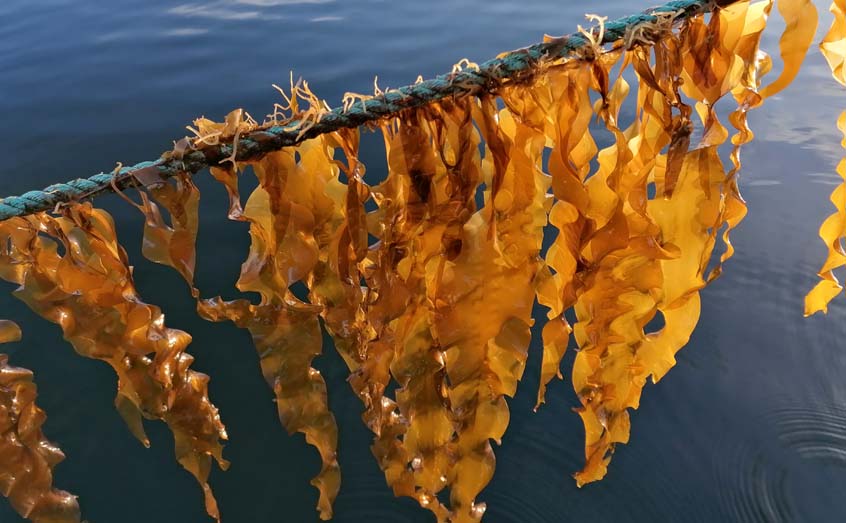SAMS news room
Public trust needed to power UK seaweed industry

Attitudes towards the UK’s emerging seaweed farming sector and lessons to learn from other aquaculture industries have been documented and analysed in a new report to be launched today (Tuesday).
The Social Licence for Seaweed Farming project, led by the Scottish Association for Marine Science (SAMS) in Oban and funded by WWF, has used the findings to produce resources for would-be seaweed farmers to improve social licence, a term given to an activity that has gained public trust and backing.
Lead author Dr Suzi Billing from SAMS will launch the report at the year’s Scottish Seaweed Industry Association annual meeting in Oban (14th – 16th November). It offers a range of resources and data from a two-year study of attitudes towards seaweed farming from a range of communities and stakeholders throughout the UK.
Dr Billing said: “Seaweed farming is at an early stage of development in the UK and Europe but there is increasing interest from investors. It is seen as a great example of nature-based solutions and is appealing for its potential socio-economic effect, particularly in rural areas.
“At this stage of development, it is important that seaweed farming learns lessons from more established forms of aquaculture. There must be a relationship between the operator and the community before a seaweed farm goes to the planning stage, so that people know what they’re getting. It is difficult to do that retrospectively, as the operator is seen as less trustworthy.
“Considering social licence to operate (SLO) in the early planning makes the planning application stages easier for all stakeholders.”
The report stresses the importance of understanding local social context when thinking about site selection. The study finds that people were more likely to accept and support seaweed farming when positive relationships were already established and critically, when the industry as a whole is perceived as environmentally sustainable.
While a relatively new concept in the UK, seaweed farming has been operating at scale for decades in Asia, which accounts for more than 95% of global production, powering an $18 billion industry.
Mollie Gupta, WWF-UK Seaweed Solutions Project Manager, said: “As we move forward in this exciting journey, social license is going to be pivotal in fostering trust, acceptance and ensuring that any benefits of seaweed aquaculture are genuinely felt and understood by local people.
“It is only with social license that we will be able to responsibly and sustainably scale up seaweed aquaculture, and in doing so achieve the potential benefits for nature, people and climate.”
The SLOSeaFarming report will be launched during Dr Billing’s conference talk at 14:45 on 14th November.
To view the project findings and resources, visit: https://readymag.com/u1892175579/4217590/
